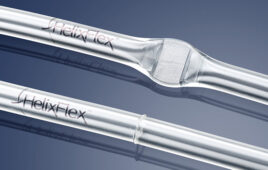In today’s rapidly evolving and highly regulated pharmaceutical and biopharmaceutical sector, product stability and shelf life from development through the supply chain and to the end customer has become more critical than ever.
Even slight changes in temperature or conditions can alter a product’s safety and effectiveness, trigger costly product recalls, and cause long-term damage to reputation.
To monitor and protect temperature and environmentally sensitive pharma and biopharma products, manufacturers increasingly rely on stability testing to make certain that drugs in development remain stable throughout the entire process.
By testing your products in simulated environments you can:
- Reduce Product Development Time
- Increase Customer Confidence
- Ensure Product Quality & Reliability
- Forecast Life Expectancy
- Reduce Costs
- Increase Profitability
- Reduce After Sales Service
(Source: Cincinnati Sub-Zero at csztesting.com)
To maintain maximum drug quality and effectiveness requires ongoing tests to assess product aging, shelf life expectancy, and the setting of reliable expiration dates. Beyond use in the product development phase, testing specialists today provide manufacturers and suppliers with a variety of services on a wide range of pharmaceutical and medical products subject to specific temperature and/or humidity conditions.
One prominent specialist company in this highly technical and critical field is Cincinnati Sub-Zero (CSZ), a provider of temperature management equipment for more than 75 years and serving pharmaceutical, medical, and other industries with temperature-management products and services.
Pharmaceutical Processing recently contacted Kristal Yelton, marketing manager at CSZ, for a brief review of the company’s programs, stability testing services, and some of the more critical tests required to protect the safety, quality, and effectiveness of today’s increasingly complex medicines.
Q: For starters, please give us some basic background about Cincinnati Sub-Zero.
Kristal Yelton: The company has three divisions. Our industrial division provides a full range of environmental test chambers. Our testing division is an A2LA Accredited test laboratory providing contract testing services. The medical division manufactures medical devices for patient temperature management used in hospitals. The company was established in 1940.
Q: How many locations do you have and do you serve clients worldwide?
Yelton: We do provide products worldwide. Our headquarters and manufacturing facility is located in Cincinnati, OH. We have two test laboratories—one in Cincinnati and a second in Sterling Heights, MI. They provide a full range of temperature, humidity, and vibration testing for stability, product storage, cold chain, package, and transportation testing.
Q: Is all testing performed at CSZ or are such services offered onsite at client locations?
Yelton: We provide both testing services and testing equipment. Customers can ship their products to us and we can perform testing at both of our test facilities. If a customer is interested in testing at their location, they can purchase the chamber from us to perform their own testing.

Q: Testing service options can be wide ranging. In the pharmaceutical industry, which types of tests are the most common or the most important?
Yelton: The FDA Guidance document ICH Q1A is one of the most common for pharmaceutical testing. The information in the guidance is consistent worldwide. This is a requirement for all drug manufacturers (in) drug and package testing. Testing involves long-term testing of products in simulated environments under different temperature and humidity conditions for extremes. There are different storage conditions for drug substances and products stored in a refrigerator and freezer and tested in the packaging. The International Safe Transit Association (ISTA) offers another group of test specifications involving transportation shipping conditions and package testing.
Q: Do you also provide testing consultation to pharmaceutical clients or are they expected to come to you with the tests they want or need?
Yelton: Our testing process is set up where customers provide us with their testing requirements. We perform the test and provide the test report.
Q: During drug development, when is the best time for a product to undergo stability testing?
Yelton: R&D, new drug submissions, product formulation changes.
Q: How crucial is a product’s packaging to its stability? Is product packaging tested as well?
Yelton: This is very important. The packaging is part of protecting the product. Our customers test for leachable, moisture, to make sure the product does not (degrade). They also test light-sensitive products.
Q: In addition to testing, CSZ develops its own medical products as well. Do you test those yourself or are you required to have them tested elsewhere?
Yelton: We do use our test laboratory to test our medical devices as well. Accelerated aging is one of the common tests. (Accelerated aging tests are utilized by manufacturers to estimate the life of a product by accelerating the effects of time in temperature and humidity conditions.)
Q: How have stability testing methods changed or advanced in recent years?
Yelton: CSZ provides a full selection of stability chambers for testing and storage. We offer single, double, and triple door chambers along with large walk-in rooms for storage of bulk API or a large batch of products. The chambers used for testing must provide uniform temperature distribution through the chamber so each drug product is exposed to the same level of temperature and humidity conditions and accuracy. Another important aspect is for quick open-door recovery after the door is opened to check a product.




